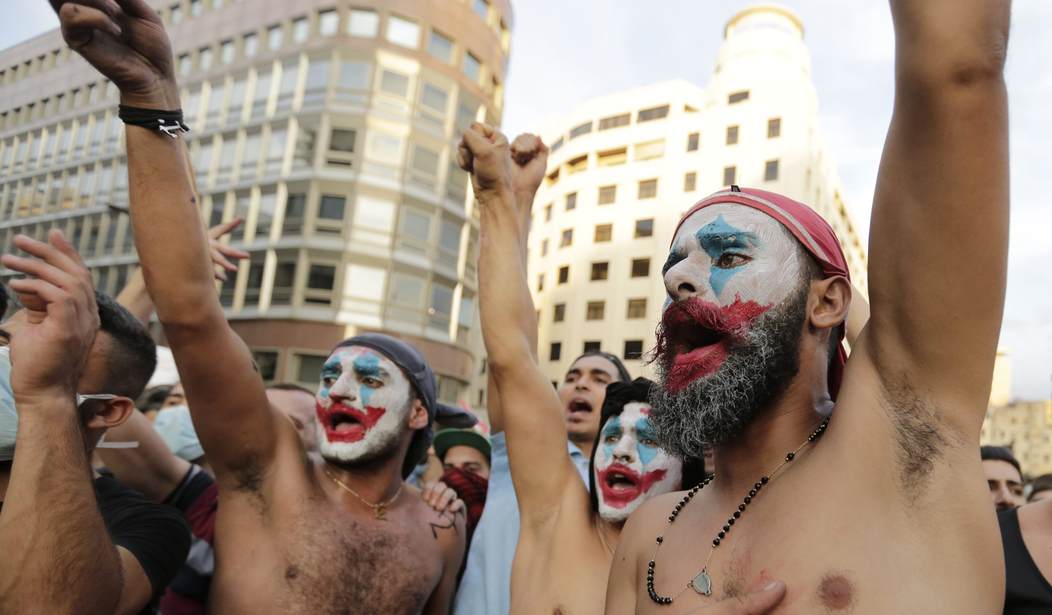The terrorist group Hezbollah sent an unmistakable signal to anti-government protesters in the streets of Lebanon that they would tolerate only a certain amount of “change” before pushing back. Hezbollah thugs descended on the main protest site in Beirut following the resignation of Prime Minister Saad Hariri and tore the place apart.
Hezbollah supporters have attacked and ransacked the main anti-government protest site in the Lebanese capital, tearing down tents and smashing chairs.
Angry groups of men, some of them wielding sticks, began scuffling with protesters who were blocking roads in Beirut early Tuesday. Some of the men chanted slogans praising Hassan Nasrallah, the leader of the militant Hezbollah group, who has criticized the anti-government protests.
Groups of men could be seen massing near main protest sites as Lebanese security forces moved quickly to try to separate them from the protesters. The protesters could be seen taking up metal poles and wooden batons.
Imam Nasrallah has been warning the protesters for days and has now apparently let loose his goons. Nasrallah knows what the protesters want and he’s not buying it.
The established political order is based on traditional sectarian divisions that have been in place since Lebanon was given its independence from France. The major political offices are split between Christian, Sunni, and Shias with the presidency going to the Christians, the prime minister to the Sunnis, and parliament speaker to the Shias. There is also a complex division of electoral representation in parliament.
They fought a civil war over power-sharing in Lebanon that finally ended in 1989 with the Taif Agreement, which called for a non-sectarian government. It never happened and Lebanon has been a political basket case since.
The protesters want nothing less than an overthrow of the established political order with the passage of a new electoral law that would eliminate sectarianism as a basis of government. That means that Hezbollah, a minor political party but a major power center as a result of it’s well-armed, well-trained militia, would probably be sidelined.
What’s more, the small group of men who have ruled Lebanon since the end of the civil war would have to legislate themselves out of a job. President Michel Aoun, a hero during the civil war but who has since aligned himself with Hezbollah, has been under fire for naming his son-in-law foreign minister.
A point of dispute emerged over Foreign Minister Gebran Bassil, the son-in-law of President Michel Aoun. The protesters have trained much of their vitriol on the two men, who are allied with Hezbollah, but Aoun has reportedly insisted on remaining in office and keeping Bassil in his post. Hezbollah, which has three ministers in the government, has stuck by its allies and was opposed to Hariri’s decision to resign.
If he accepts his resignation, Aoun will task the now-resigned government to continue in a caretaker capacity. Under the constitution, he then has to hold binding consultations with the heads of parliamentary blocs to ask them for their choice of a new prime minister. He could then appoint Hariri or another individual from the Sunni community to form a government.
Hariri was forced to resign because the unrest has created a financial crisis. Banks have been closed for several days and the bankers are warning that Lebanon is near financial collapse. Its debt load is crushing and some kind of international rescue must be organized or, as the battles between Hezballah and anti-government protesters showed, the country may slip back into a civil war.
The chaos could threaten Israel and might tempt Hezbollah to goad Tel Aviv into another war.










Join the conversation as a VIP Member